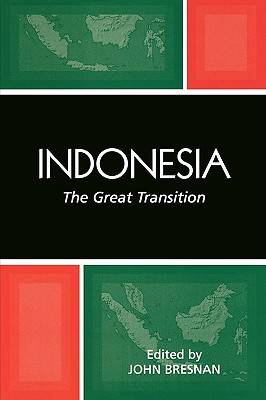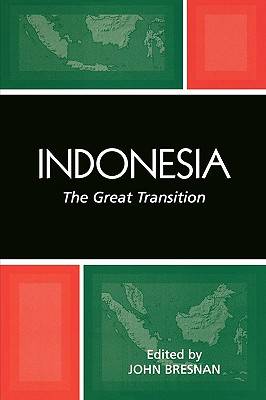
- Afhalen na 1 uur in een winkel met voorraad
- Gratis thuislevering in België vanaf € 30
- Ruim aanbod met 7 miljoen producten
- Afhalen na 1 uur in een winkel met voorraad
- Gratis thuislevering in België vanaf € 30
- Ruim aanbod met 7 miljoen producten
Indonesia
The Great Transition
Omschrijving
Indonesia is in the midst of an epic transition as it moves from decades of authoritarian government to a new era of democratic opening, from years of secular government to a time of struggle over the role of Islam in public life, and from the breakdown of a "miracle" economy to a search for resilience in the face of global forces. In this timely work, leading scholars analyze the causes of the social, political, and economic crises that erupted in Indonesia in the late 1990s, the responses of the elite and civil society, and the prospects for continuing reform. In the process, they explore such issues as the relevance of the nation-state in an age of globalization, the role of Islam in politics and violence, the strengths and weaknesses of a negotiated route to democratic governance, the relationship of corruption and structural reform to economic growth, and the prospects for stability in Southeast Asia. The first book to grapple with the scale and complexity of this historic transition, this work offers a clear and compelling introduction to the Indonesian experience for students with an interest in the problems of post-colonial states, to scholars in comparative Asian studies, and to anyone seeking a serious yet accessible introduction to the world's largest Islamic democracy.
A Study of the Weatherhead East Asian Institute, Columbia University
Specificaties
Betrokkenen
- Uitgeverij:
Inhoud
- Aantal bladzijden:
- 336
- Taal:
- Engels
- Reeks:
Eigenschappen
- Productcode (EAN):
- 9780742540118
- Verschijningsdatum:
- 6/10/2005
- Uitvoering:
- Paperback
- Formaat:
- Trade paperback (VS)
- Afmetingen:
- 153 mm x 227 mm
- Gewicht:
- 353 g

Alleen bij Standaard Boekhandel
Beoordelingen
We publiceren alleen reviews die voldoen aan de voorwaarden voor reviews. Bekijk onze voorwaarden voor reviews.







